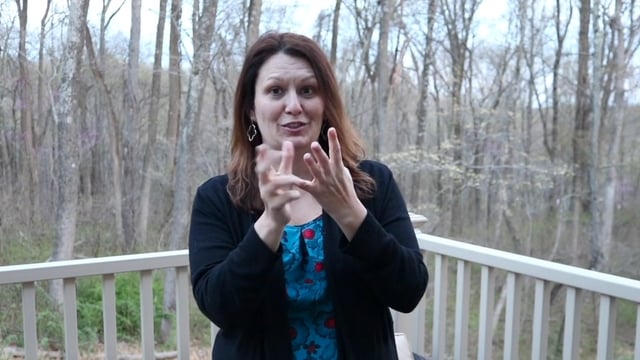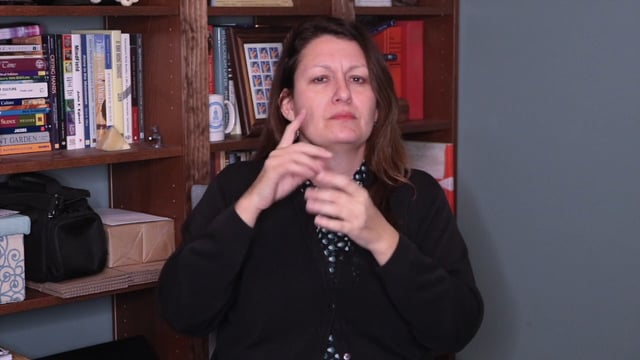This article originally appeared at i711.com.
The buzz those days is about how many people around the nation are moving to Indianapolis in order for their children to attend the Indiana School for the Deaf. Numbers being churned through the rumor mill range from 25 new students to over 100 for the 2006-2007 school year. It’s not just Indiana, though; there are other families moving to areas near the Maryland School for the Deaf, California, even Iowa. And this trend across the nation fascinates me.
Sure, this isn’t a new phenomenon. Both deaf and hearing parents have been moving for decades to wherever the best school is for their kids, although deaf parents have considerably fewer choices in terms of American Sign Language environments. Back when I was younger, it wasn’t uncommon for deaf children to go to the next state for school. For instance, during the 1980s and 1990s, many kids in the Chicago area attended the Wisconsin School for the Deaf simply because it was geographically closer than the Illinois School for the Deaf. Even my husband’s parents moved from Chicago to Wisconsin, so that both my husband and his brother could attend the Wisconsin School for the Deaf; the school experienced a surge in students from the Chicago area after St. John’s School for the Deaf in Milwaukee closed in the early 1980s.
Parents – in particular, deaf parents – nowadays are much more empowered about language choice and educational quality. Many move to send their children to ASL-English schools. Or they move because they like the superintendent, such as at New Mexico and Maryland Schools for the Deaf. Parents may also move because at these new schools, jobs are aplenty for them – dormitory staff, teachers, administration-level jobs. Family and friends being concentrated in largely “deaf-populated” areas is yet another reason for moving to those areas; social events have always been a major part of the Deaf community. And let’s not forget athletics. Sports is yet another valuable commodity at deaf schools and within the community. In fact, when renowned football coach Andy Bonheyo left the Model Secondary School for the Deaf to take a job at Texas School for the Deaf, a cluster of his players followed him to Texas.
Are there drawbacks to this trend? Sure. Elitism among deaf families at certain schools has proliferated to the point where there are wild stories of great divisions at these schools. I remember a deaf friend – who is from a large deaf family –being furious when a birthday party was listed as “for deaf children only.” His children were hearing and had always socialized with these same deaf kids at community events, yet they were suddenly ostracized because they weren’t deaf. There also seems to exist a level of trying to always better each other at certain schools across the nation. Of course, this isn’t just a ‘deaf school thing’; hearing parents do it too.
It’s also interesting that when a deaf family leaves a deaf school for another, there’s also a degree of resentment by the people left behind who say, “What, they think they’re too good for our school? Wait and see, the kid’s going to turn out bad.” But this isn’t a new thing, either. That was what people said about me when I left the Illinois School for the Deaf in order to move with my mom to Chicago; I like to think I’ve turned out okay.
Even so, this desire to give our children better decisions comes with a amount of agony. I’ve been watching many parents who have deaf children wrestle with their decisions. Since I’m at that age in life where almost all of my friends are new parents, many of them are suddenly rudely awakened that the plan they’ve laid out for their children has to be discarded in favor of the best situation possible for their children simply because they’re deaf. They have the best advice available: their own experiences. My husband and I come from similar family backgrounds but very different educational experiences. We’ve had many discussions about what we’ll do if our children happen to be deaf. For us, and many others, it boils down to key factors such as who the peers in our children’s classes are, who and how good the teachers and support staff are, our children’s needs, and what the educational philosophy of the school is.
As I look at this trend happening across the nation, it impresses me how more and more families are willing to uproot their entire lives, sacrifice good-paying jobs for sometimes lower-paying jobs, postpone or give up their own dreams and goals and move so that their children can attend a deaf school with a top-notch quality. Never mind all these drawbacks; the families are doing this willingly, all so that their children can have better opportunities than they did.
That, to me, is parenting at its best.
Copyrighted material, used by permission. This article can not be copied, reproduced, or redistributed without the written consent of the author.




